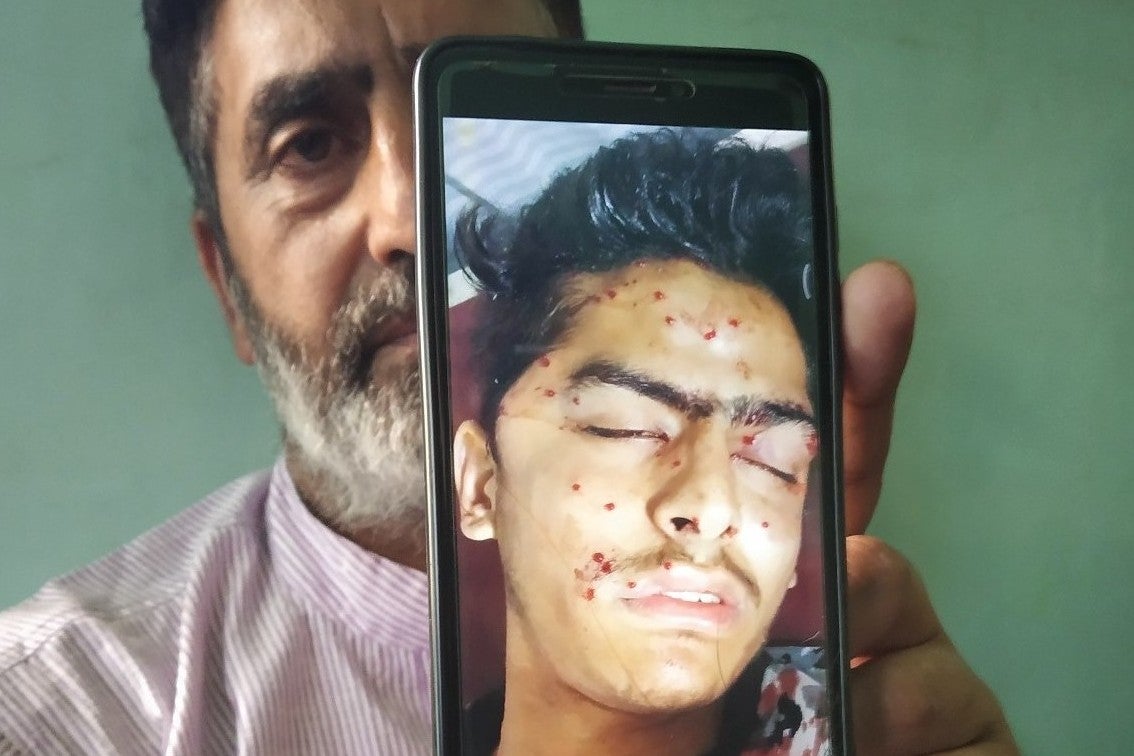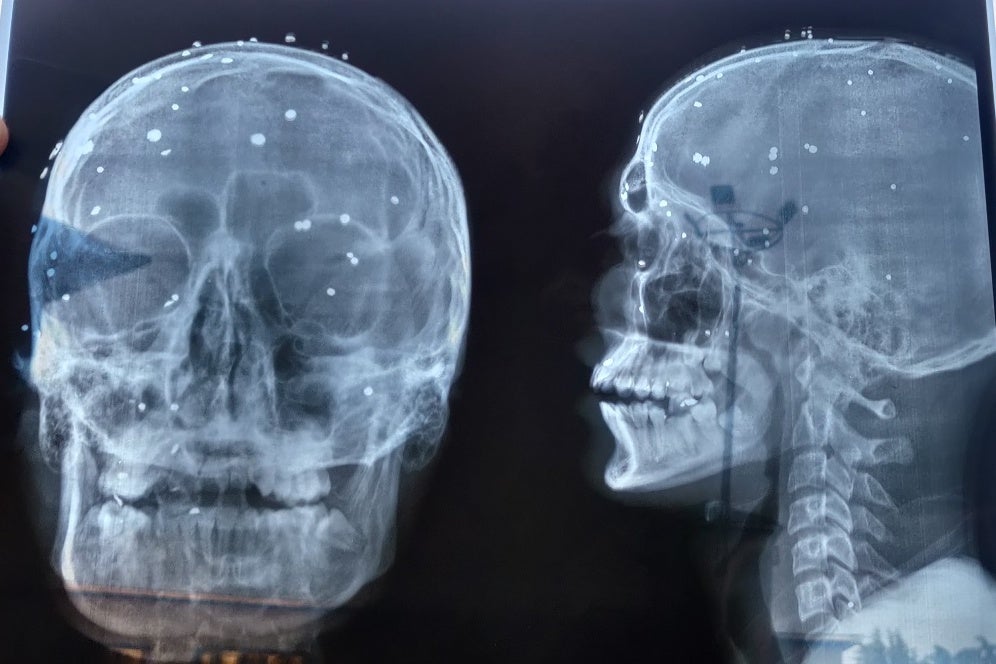Kashmir crisis: Clashes erupt after first civilian death confirmed
Family of Asrar Khan say that Indian security forces shot him in the head

Your support helps us to tell the story
From reproductive rights to climate change to Big Tech, The Independent is on the ground when the story is developing. Whether it's investigating the financials of Elon Musk's pro-Trump PAC or producing our latest documentary, 'The A Word', which shines a light on the American women fighting for reproductive rights, we know how important it is to parse out the facts from the messaging.
At such a critical moment in US history, we need reporters on the ground. Your donation allows us to keep sending journalists to speak to both sides of the story.
The Independent is trusted by Americans across the entire political spectrum. And unlike many other quality news outlets, we choose not to lock Americans out of our reporting and analysis with paywalls. We believe quality journalism should be available to everyone, paid for by those who can afford it.
Your support makes all the difference.Clashes erupted in Kashmir on Wednesday after news broke that a student had succumbed to his injuries in what is the first confirmed civilian death since India’s decision to revoke the region’s special status.
Asrar Khan, 18, from Illah-i-Bagh locality in the capital city Srinagar, was shot in the head by security forces on 6 August, a day after New Delhi’s decision.
As the news of Khan’s death spread, youth took to streets in Srinagar and other parts of Kashmir, throwing stones at armed forces deployed by India to quell the protests.
Roads in Srinagar leading to Khan’s house have now been blocked with barbed wire and barricades.
“Restrictions have been reimposed in Srinagar as a precautionary measure to maintain law and order. So far no untoward incident has been reported,” a police official said.
Khan’s father Firdous Ahmed alleges that Indian forces targetted his son without provocation.
“He was playing cricket with his friends in the community park on the evening of 6 August, when the Indian forces targetted him with pellets,” Mr Ahmed told The Independent from his home, tears rolling down his face.
Hospital records and X-ray scans shared with The Independent reveal that multiple pellets had hit Khan’s skull and face, including his left eye.
Khan’s friend who witnessed the incident and took him to the Sher-e-Kashmir Institute of Medical Sciences (Skims) hospital said the student was bleeding profusely from his head and mouth after he was shot. He asked to remain anonymous for fear of reprisals.

The director general of Indian police Munir Khan however denied the allegation that the youth was targetted by security forces and said he was “hit by a stone” thrown by demonstrators.
“This is the proof. (Indian forces) are calling this a stone, but these are pellets,” Mr Ahmed said, pointing towards the pellet-ridden face of Khan in a photo taken minutes after he was admitted to hospital on 6 August.
Narendra Modi, the prime minister of India, announced earlier this month the revocation of Article 370, the constitutional clause that allowed Kashmir to make its own laws and prevent outsiders settling, and designated Kashmir as Indian territory.
Kashmir has since been under lockdown and protests banned, with Indian security forces imposing curfews on residents.
Internet and communication networks have also remained shut in the disputed territory, impacting greatly on emergency services.
In the clashes that have ensued this month, India has maintained that forces have acted with “restraint” and that, until now, no civilians have been killed.
Families have, however, told The Independent that several civilians have been killed by the authorities, who have then instructed doctors to keep their deaths off official records.
Join our commenting forum
Join thought-provoking conversations, follow other Independent readers and see their replies
Comments